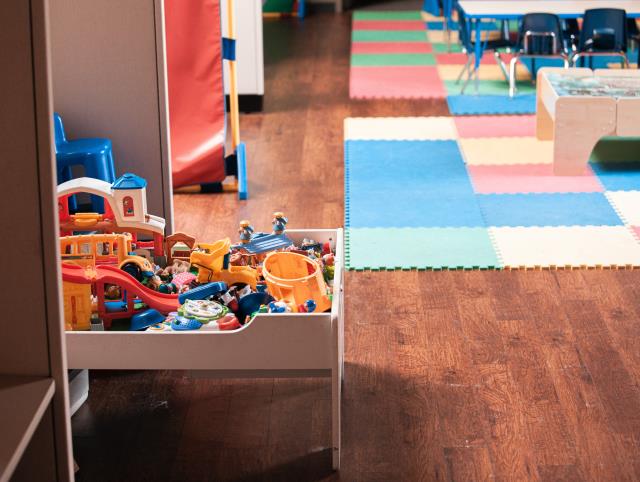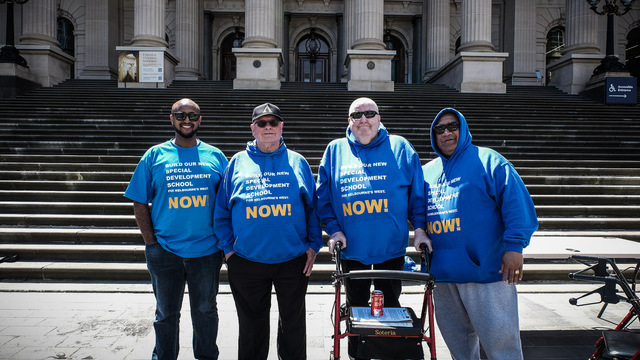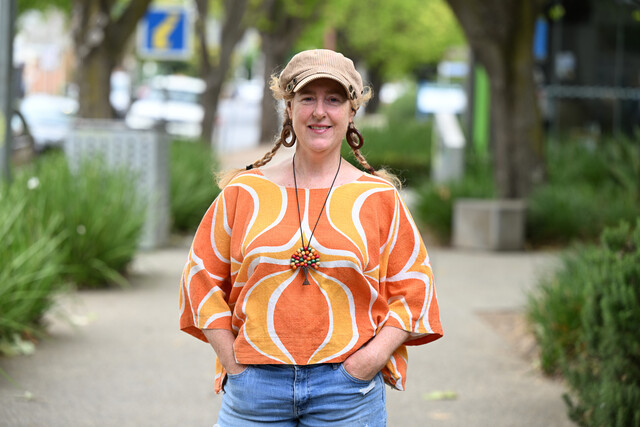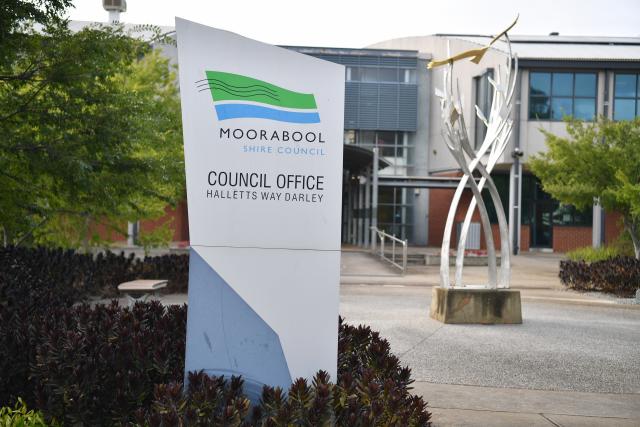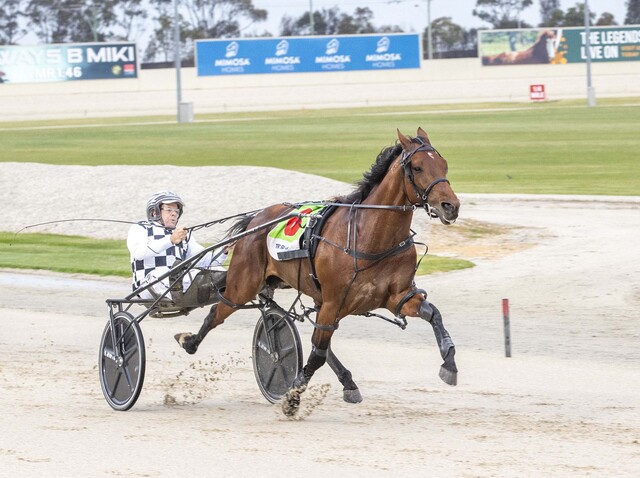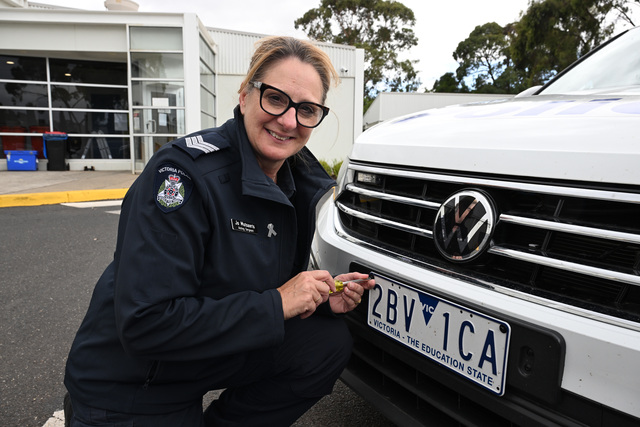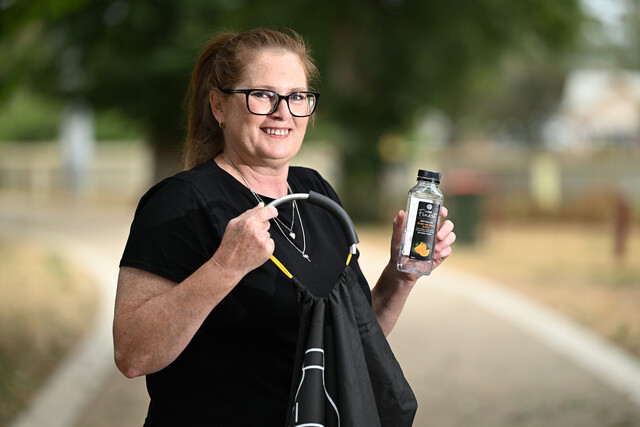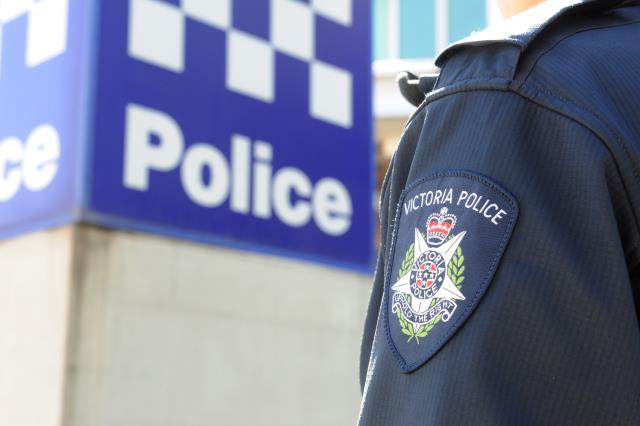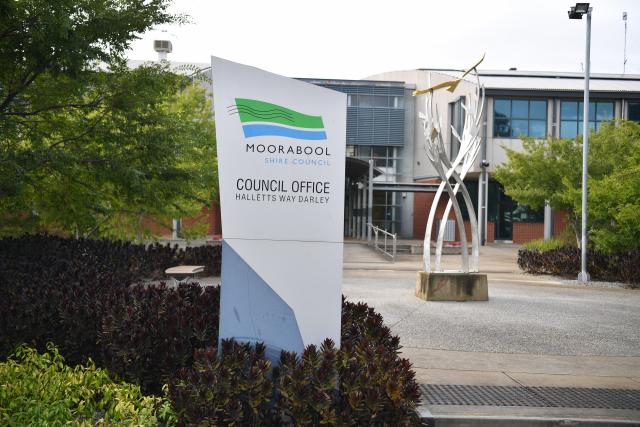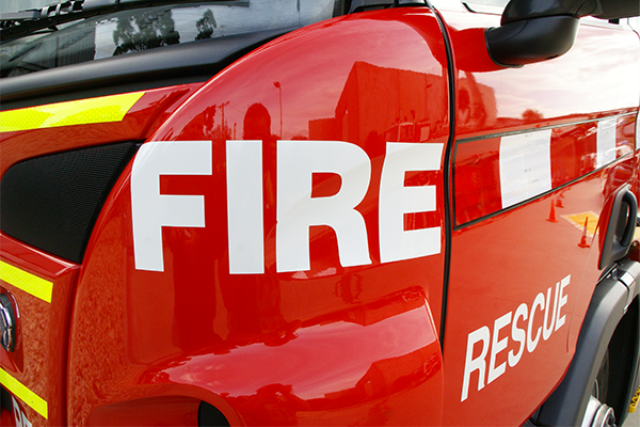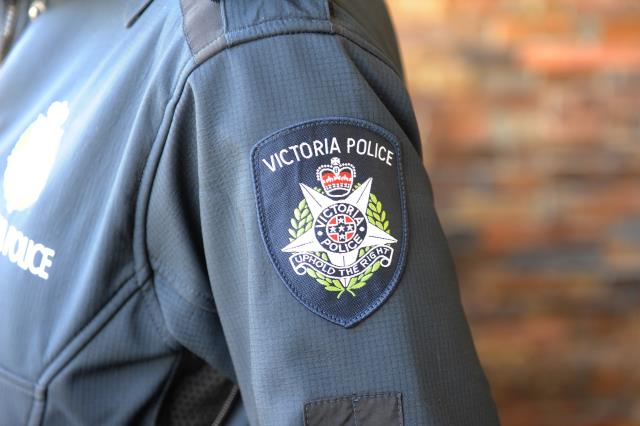In a small office crammed with filing cabinets and desks at the back of Werribee police station, officers are on the phones performing welfare checks.
They start by calling women who only three days ago were reported as victims of domestic violence.
Some of the women are reluctant to talk to the police. Some have made up with their attacker and don’t want to lay criminal charges. Others are too scared to speak out or believe there is nothing police can do to help them.
But that doesn’t stop the officers making the calls. Their job is to do everything they can to reduce family violence.
The officers are part of the Wyndham family violence unit, one of the first of its kind in Victoria and formed to respond to calls about domestic abuse.
Wyndham’s soaring family violence rates quickly made getting to every call-out almost impossible.
Now the unit focuses on recidivist offenders and following up with victims to ensure they are receiving the support they need.
Latest police crime statistics reveal that 578 reports of domestic violence were made in Wyndham between October 1, 2012, and September 30, 2013.
Police received 500 reports in the previous year.
Wyndham is not the only area with a family violence problem. Last financial year, police in Hume received 1027 reports of family violence, while Melton reported 497 incidents. Family violence units have been set up in both areas to tackle the problem.
Each year, White Ribbon Day (held last Monday) aims to draw the community’s attention to domestic violence. Men are called on to denounce violence against women and asked to pledge to do whatever they can to phase out family violence.
Wyndham family violence unit’s Senior Constable Dylan Langerak says education and changes in community attitude are the keys to reducing the problem.
“A lot of the time, what happened in the home stayed in the home, but people now realise this kind of stuff is unacceptable,” he says. “People are now starting to call us for advice.”
Langerak believes financial stress, drugs and cultural differences are behind Wyndham’s family violence.
“Here, there is a real split demographic, but family violence is so common,’’ he says. “We have people from lower socio-economic backgrounds, refugees and a lot of arranged marriages, which means there is cultural isolation.
“Ice and alcohol are also problems. Ice is expensive and addictive.”
Constable Kristine Cullen has been with the Wyndham unit since the start of the year. Before joining the team, she had no idea how prevalent family violence was.
“I hadn’t had a lot of exposure to family violence when I started, but for me it’s becoming the norm.”
Cullen says most incidents occur on Thursday and Sunday nights.
She says people often stereotype victims of family violence, believing they come from lower socio-economic families or have problems with drugs and alcohol, but the stereotype is wrong.
“You can go to the trashiest houses and the nicest houses. It doesn’t matter. You don’t know what’s going on behind closed doors.”
Each day, Cullen and her colleagues make 10 to 15 calls to victims. That means there were 10 to 15 incidents of family violence three days earlier.
On Thursdays, they go to Werribee Magistrates Court to deal with intervention orders.
In between, they perform house visits, check up on recidivist offenders who have been in contact with police three or more times in the past 12 months, and call victims who made reports.
“We work closely with affected family members,” Cullen says.
“Sometimes you can work with the victims to help them and sometimes there is nothing more you can do. You try and give them support, but at the end you think, how much further can I go?”
Sally* is just one of the women Cullen is working with. For the past 12 years, she has been a victim of domestic violence at the hands of her ex-partner and then her teenage son, Ben*.
Cullen, Langerak and Constable Nase Holani are in regular contact with Sally and Ben to ensure they are safe. Sally also receives help from Women’s Health West.
“I wish I had got help sooner,” she says. “It started in 2001 when we were living in Altona … I thought it would stop. I’m not the person I was.”
Sally says she never imagined Ben would view violence as the solution to his problems, but a couple of years ago he began hitting her and smashing up their house. She says being able to talk to Constable Cullen about her problems is helpful. She is reluctant to press charges against her son, fearing he could end up in jail.
Langerak says he understands Sally’s hesitation, but the team is focused on reducing repeat offending.
Police statistics reveal that Wyndham’s family violence unit is one of the state’s busiest.
Holani says the number of cases he and his colleagues deal with daily makes the job difficult and mentally taxing, but the closeness of the unit makes a difference.
He has been part of the team for about four months after working a stint on the vans.
“Working on the van, family violence calls took up about 50 per cent of the jobs so I was aware of how big a problem it was,” he says.
For Holani, dealing with children who are caught up in the violence is the hardest part of the job.
“It is mentally taxing knowing what’s happening to kids. That’s probably what affects you the most.”
» Wyndham family violence unit: 9742 9444
* Names have been changed to protect identity


